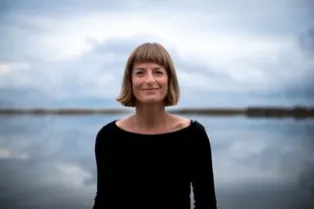Silja Emmel
Master of Science in Development Studies
"Be open to opportunities that come along!"
Alumni portrait of alumna Silja, from the Master of Science in Development Studies. Interview was conducted in December 2023.
What have you been up to since your graduation from Development Studies?
I had the idea to work for an NGO when I graduated as I have been volunteering with several NGOs during my studies. When I started looking for jobs my boyfriend at the time shared a job ad for a temporary position in the international team of the Danish Statistics Office. I had been looking for a while, thought why not, applied and they offered me the job. Had that job for 9 years, working with capacity development in official statistics with non-western countries. First as assistant project manager and then with my own project portfolio. After 9 years I felt like a change, quit and started training as a cabinet-maker. While completing the basic training I was contacted by an old colleague that by then worked for the UN Statistics Division, asking if I could be interested in consultancy work. I thought once again, why not and since then have been working for the UN Statistics Division and UN Women, designing training materials and guidance documents, running workshops and project managing capacity development activities.
How does a regular workday look like for you?
Can be a lot of different things, all depending on whether I am home or in-country. When home I have a list of tasks I need to manage myself as there is no boss keeping track. My contracts often run over 6-months or longer with a number of defined deliverables. So I spend my days working on the bigger and smaller tasks on my list. Then, a lot of my work consists of coordinating and communicating with partner countries. So depending on the day I spend time in virtual meetings too, sometimes early, sometimes late because of the different timezones. Being remote and on a 4-day contract also allows me great freedom in terms of taking my dog out for walks in day time, as well as pursuing my other passions, climbing and pottery. When I am travelling I have long days, right now mostly in African countries, coordinating and facilitating training courses for National Statistical Offices as well other government institutions that are part of the Statistical Systems of the countries.
What are your key takeaways from your studies in Development Studies at Graduate School that you find most useful in your job?
There are no one size fits all solutions and every country is different and the starting point should always be local needs and wishes. Just because we do something in Denmark or Sweden does not mean the same thing will work in Ghana or Kenya. Having fellow students from so many different countries in my year was greatly enriching because it showed me such a variety of perspectives and different ways to see the same topic. A practical skill I found useful later is the ability to read through a large amount of information quickly and filter out the main points and be able to question them.
What career advice would you give to current students at Graduate School?
Be open to opportunities that come along. I never liked statistics during my studies and would have never imagined that I end up working in that field for so many years of my career already - finding it very meaningful and exciting without being a statistician. Also, look at international teams in government institutions. Most ministries in the Danish public sector have small teams that work with capacity development abroad in a number of exciting countries and topics.


